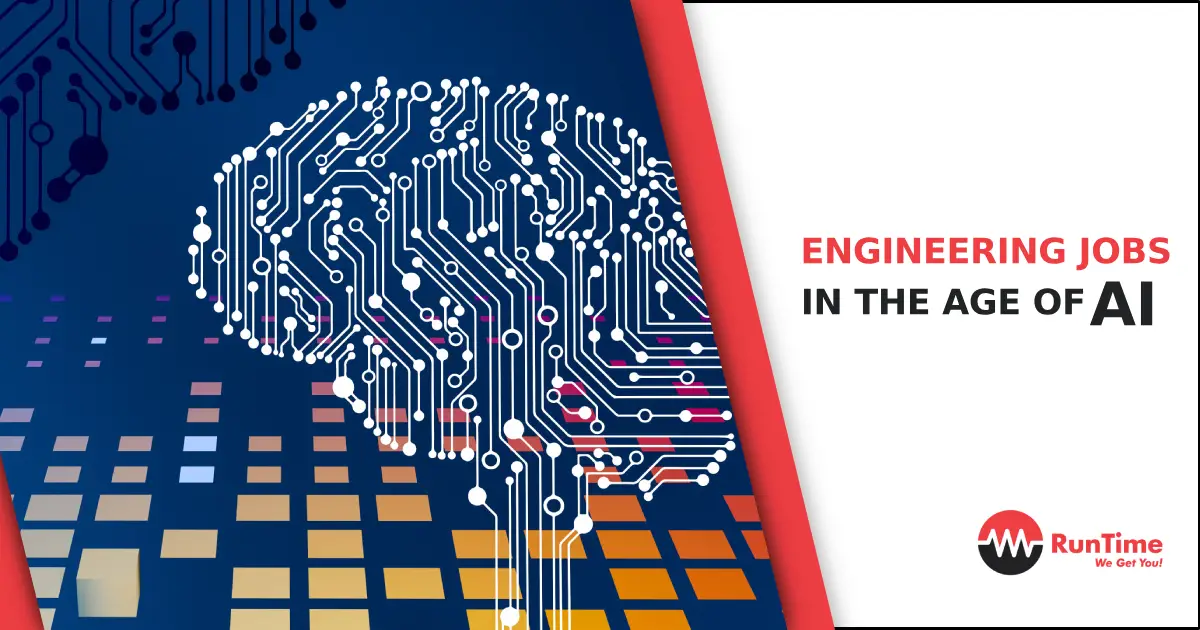Artificial Intelligence (AI) has emerged as a transformative force, reshaping the landscape of various industries, particularly the field of engineering. As engineers, our gaze is fixed on the horizon of progress, but accompanying the strides in AI technology are growing concerns about job loss and displacement.
The rapid evolution of AI sparks legitimate worries within our engineering community as we contemplate the potential for automation to supplant human labor. This apprehension drives a renewed interest in deciphering the trajectory of engineering professions in the face of AI’s expanding influence.
Growing Concerns about Job Loss and Displacement
As AI continues to evolve, we, as engineers, are increasingly concerned about the potential for automation to replace human labor. The fear of job loss and displacement is valid, given the rapid advancements in AI technology and its ability to automate tasks that we once performed. This concern has led to a heightened interest in understanding how AI will shape the future of engineering jobs.
Are Engineering Jobs at Risk?
While there are valid concerns about the potential for automation to replace specific tasks traditionally handled by engineers, the collaborative synergy between AI and engineers presents opportunities for enhanced productivity and innovative problem-solving. Engineers must stay well-informed, engage in continuous learning, and embrace the evolving changes introduced by AI to thrive in this dynamic landscape.
The steady integration of AI has significantly transformed the engineering industry, automating diverse tasks and amplifying productivity and efficiency. To remain competitive in the job market, we need to adapt and cultivate new skills. For example, AI-powered design tools streamline the design process, and machine learning algorithms optimize manufacturing processes, highlighting the necessity for skill development in this technologically advancing era.
The Potential for AI to Create New Opportunities
Despite the concerns surrounding job displacement, AI also has the potential to create new opportunities and job roles within the engineering field. AI can enhance engineering work by providing valuable insights, automating repetitive tasks, and enabling us to focus on more complex and creative problem-solving. Additionally, as AI technology continues to evolve, there will be a growing demand for engineers with expertise in AI, machine learning, and related fields.
AI’s Influence on Engineering Disciplines
Artificial Intelligence (AI) has a significant impact on various engineering disciplines, transforming the way we work and the tools we use. This section will discuss the influence of AI on software engineering, electrical and electronics engineering, and mechanical and civil engineering.
Software Engineering and AI-driven Tools
In the realm of software engineering, AI-driven tools have introduced new methods for code generation and optimization, enabling more efficient and effective programming. Furthermore, AI-powered solutions have streamlined the DevOps and continuous integration processes, enhancing the overall software development lifecycle. As a result, we, as software engineers, must adapt to these AI-driven tools and develop new skills to stay relevant in our field.
Electrical and Electronics Engineering
Electrical and electronics engineering is another discipline with significant advancements due to AI-driven design and simulation tools. These tools have not only improved the design process but also led to the development of Intelligent Embedded Systems that incorporate AI into various electronic devices and systems. We, as engineers in this field, must stay up-to-date with AI advancements and be prepared to incorporate these technologies into our work.
Embedded Systems Engineering
The integration of AI technologies has become increasingly crucial in the embedded systems industry. Embedded systems engineers now leverage AI algorithms to enhance the intelligence and functionality of embedded devices. These systems, ranging from smart home devices to industrial control systems, benefit from AI’s ability to process data locally and make real-time decisions. Engineers specializing in embedded systems need to stay abreast of AI developments to design and implement intelligent and efficient embedded solutions.
Mechanical Engineering
Mechanical engineering is also changing with the integration of AI. AI-driven simulations and optimization tools are revolutionizing the design and manufacturing processes in mechanical engineering. Additionally, the application of AI in robotics, another subset of mechanical engineering, is transforming how robots perceive and interact with the world. Mechanical engineers must adapt to these advancements to design innovative and efficient mechanical systems.
Evolving Skillsets for Engineers in the Age of AI
In the age of Artificial Intelligence (AI), we must continuously adapt our skillsets to stay relevant and competitive in our respective fields. This includes acquiring crucial technical skills as well as developing soft skills and adaptability.
Crucial Technical Skills
As AI continues to transform the engineering landscape, certain technical skills have become increasingly important for us. These essential skills include machine learning and data science, which play a crucial role in developing and implementing AI solutions. Additionally, expertise in neural networks and deep learning allows us to create more advanced AI systems that can perform complex tasks and make data-driven decisions. Furthermore, data engineering and management skills are essential for handling the vast amounts of data generated by AI systems and ensuring their proper functioning.
Soft Skills and Adaptability
Apart from technical skills, we must also focus on developing our soft skills to excel in the age of AI. Problem-solving and critical thinking abilities are essential for us as we navigate the challenges posed by AI technology and create innovative solutions. Lifelong learning is another vital skill, as staying updated on emerging technologies and continuously honing our expertise is crucial for adapting to the rapidly evolving engineering landscape. Finally, communication and collaboration skills are indispensable for us, as working effectively with interdisciplinary teams and conveying complex ideas to diverse audiences is a critical aspect of engineering in the age of AI.
How RunTime Recruitment Can Help?
One of the key factors contributing to RunTime’s success in technical recruiting is our unique approach to the engineering recruitment process. This ensures that engineers are matched with positions that align with their skills and expertise, increasing the likelihood of success in their new roles.
Another critical aspect of RunTime’s effectiveness is our focus on understanding technical job specifications. As a company founded by engineers turned recruiters and researchers, RunTime knows how to quickly identify the most qualified candidates for various engineering positions. This understanding of technical job requirements allows RunTime to efficiently match candidates with the right opportunities, ensuring a seamless recruitment process for both engineers and employers.
Furthermore, RunTime’s expertise extends across various industries, including medical, transport, industrial, audio/video, space, and machine learning/computer vision. This diverse industry expertise allows RunTime to cater to the specific needs of each engineering discipline, ensuring that candidates are not only technically skilled but also well-suited for the industry in which they will be working.
Related Article: How AI Can Help Engineers Upskill
Conclusion
In this age of AI, the future of engineering jobs presents both challenges and opportunities. While concerns about job displacement and automation are valid, AI advancements also create new roles and potential for growth within the engineering field. To thrive in this evolving landscape, we must adapt to new technologies and continuously develop our skills. Continuous learning, embracing change, and specializing in emerging technologies and AI applications are essential strategies for us to stay relevant in the job market. Honing technical and soft skills can ensure success and longevity in the ever-changing engineering landscape.
Make Your Dream Engineering Job a Reality with RunTime
At RunTime Recruitment, our team of expert engineers-turned-recruiters possess a deep understanding of technical recruiting within the engineering industry. We are committed to offering you valuable guidance and support throughout your job search journey, ensuring you find the perfect job that matches your skills and qualifications. So, if you’re a highly skilled engineer looking for new opportunities, we are here to help you.
Check out RunTime’s job portal to stay updated with the newest job openings in the engineering industry.









